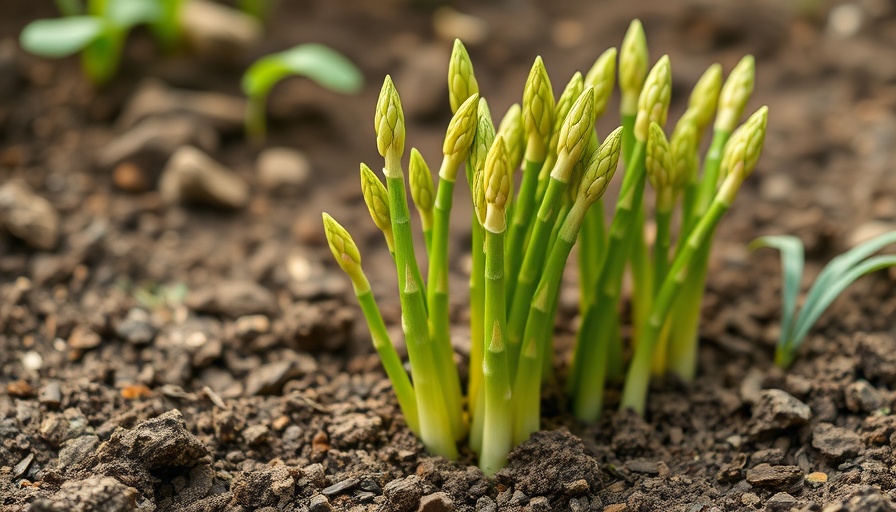
Understanding Asparagus Growth: Why Thickness Matters
Asparagus, a favorite among home gardeners, is a perennial vegetable that requires years of care before it reaches maturation. One of the most disappointing experiences for asparagus growers is finally harvesting their beloved spears only to find that they are thin and weak. To avoid this, understanding the factors that contribute to healthy asparagus growth is essential.
Common Causes of Thin Asparagus and How to Fix It
If your asparagus spears are thinner than expected, don’t despair! Identifying the underlying issues can lead to effective solutions. Here are several common reasons why asparagus may not thrive:
- Not Planting Deeply Enough: Ensure that asparagus crowns are planted several inches deep, ideally around eight inches. If they haven’t been buried deep enough, add soil to protect the crowns, which will promote healthier spear growth.
- Lack of Water: Though asparagus plants can tolerate shorter periods of drought, inadequate watering—especially during the first few growing seasons—can result in stunted growth. It's crucial to provide one to two inches of water per week, ensuring the moisture reaches deep roots.
- Nutrient Deficiency: As heavy feeders, asparagus thrives in nutrient-rich soil. Regularly amending the soil with compost can provide essential nutrients and improve growth. Organic fertilizers are encouraged for promoting sustainable practices in your garden.
- Overharvesting: It can be tempting to harvest asparagus spears early in the growing season, but doing so can weaken the plant's vitality. Allowing spears to grow fully helps to maintain the health of the asparagus crowns for future bounties.
- Age of the Plants: Older asparagus plants can produce thinner spears as they mature. Regularly check your planting and consider renewing older beds with new crowns to ensure a healthy harvest.
The Importance of Soil Quality for Florida’s Home Gardeners
This is especially pertinent for gardeners in Florida, where soil quality can significantly impact the success of vegetable gardens. Testing soil pH and nutrient levels periodically can be a game-changer. The ideal pH for asparagus is between 7.0 and 8.0. Using organic practices such as composting can enhance soil health and provide long-term benefits to this nutrient-loving plant.
Effective Gardening Tips for Sustainable Asparagus Growth
Gardening enthusiasts looking for thick asparagus spears should consider these sustainable practices:
- Regular Mulching: Applying a thick layer of organic mulch can conserve moisture, prevent weeds, and gradually enrich the soil as it decomposes.
- Crop Rotation: Introducing different crops can reduce soil-borne diseases and maintain nutrient balance. This practice keeps the asparagus plants healthier over time.
- Companion Planting: Planting asparagus alongside beneficial companions like tomatoes and peppers can enhance growth and deter pests.
Conclusion: Take Proactive Steps for a Thriving Asparagus Garden
Ultimately, growing thick, robust asparagus requires dedication, attention, and the right information. By ensuring proper planting depth, adequate watering, nutrient-rich soil, and avoiding early harvesting, gardeners can enjoy the health benefits and culinary delight of juicy asparagus spears. Embrace these gardening tips and take your asparagus garden to the next level!
 Add Row
Add Row  Add
Add 




Write A Comment